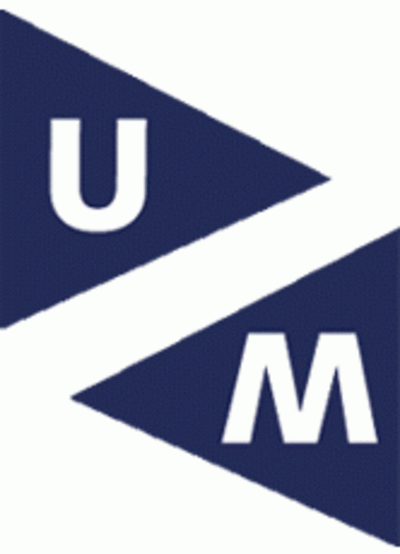
MSc in Financial Economics
Maastricht University, School of Business and Economics

Key Information
Campus location
Maastricht, Netherlands
Languages
English
Study format
On-Campus
Duration
1 year
Pace
Full time
Tuition fees
EUR 2,209 **
Application deadline
01 May 2024*
Earliest start date
Sep 2024
* for non-EU/EEA | June 1 for EU/EEA
** statutory fee, institutional fee for this program is: € 15,800
Introduction
Do you follow the latest news on stock markets, derivatives, interest rates, inflation, and exchange rates? Are you intrigued by the role of central banks, for example, the part the ECB played in saving the financial system? Or would you like to come up with new business models that can be introduced in the financial sector, since the old ones no longer seem to work? If so, the master's in Financial Economics can be your passport to the world of financial markets. It brings together expertise in finance, general economics, and quantitative techniques in a unique, multidisciplinary approach not found elsewhere. Together with industry experts, you will explore the world of financial economics and will specialize in one of the following:
- Asset Pricing
- Banking
- Financial Analysis
Fast facts
- three specializations: Asset Pricing, Banking, and Financial Analysis
- learning methods: Problem-Based Learning, guest lecturers, presentations, assignments, papers
- 1-year, full-time master's, taught in English
- starts in September and February
- weekly: 8 hrs classes, 12 hrs group work, 20 hrs independent study
- Double Degree available
- you’ll get an MSc in Financial Economics
Why this program?
The master's program in Financial Economics at Maastricht University is on the rise. The number of students is rapidly growing and, for two years running, the program has shared first place in the national Keuzegids ranking of finance master’s programs in the Netherlands. It unites the expertise from Maastricht University’s School of Business and Economics in finance, general economics, and quantitative techniques in a unique, multidisciplinary approach not found elsewhere. This ensures that you receive broad and thorough training on the one hand, and the opportunity to specialize on the other.
Admissions
Gallery
Accreditations
Scholarships and Funding
It is Maastricht University’s (UM) mission to offer students from all over the world the opportunity to develop into active, globally oriented thinkers that are ready to make a positive contribution to their societies.
UM’s high-quality, innovative education based on small-scale Problem-Based Learning (PBL) in an international and intercultural setting prepares students for this purpose.
As an open and accessible academic community, UM offers several scholarships to support top-performing undergraduate and graduate students with personal development potential that are experiencing financial difficulties to pursue a degree at UM. UM scholarship students function as important ambassadors of the university during and after their studies.UM scholarship students are selected on the basis of their academic excellence, extracurricular engagement, active citizenship and financial need. As the number of scholarships is limited, the selection process is highly competitive.
Before applying for a UM scholarship, please take into account the factors summed up below. Read these carefully, to make sure that the valuable time you invest in applying pays off:
- You will have to apply for a study programme at UM before applying for a scholarship;
- You are only allowed to apply for one UM scholarship, multiple applications will be disqualified;
- Verify if your nationality is eligible for the scholarship;
- Verify whether your study programme is participating in the scholarship;
- Ensure that if the scholarship covers only the tuition fees, you are able to finance your own living expenses (rent, food and insurances) for the complete duration of your studies.
Curriculum
Problem Based Learning
Problem-Based Learning (PBL) is an innovative, student-centered instructional method widely used at Maastricht University. You will work in small tutorial groups of 12 to 15 students, and collaboratively seek practical solutions to real-world problems. Instructors act as facilitators, giving help as it’s needed. This allows you to build independence and develop research skills. As opposed to lectures – which are still the primary teaching method at most universities – PBL is dynamic, requiring active participation in a variety of tasks such as:
- deciding how to approach a given problem
- setting learning goals
- organizing tasks to achieve those goals
- sharing your findings with one another
Amazing education opportunities
Premium honors program
Premium gives you that extra edge by offering real-world experience during your studies. As part of a team of students, you’ll build the experience and skills employers are looking for. Work on a real-world assignment for a company, NGO, or educational institution. Create a personal development plan. Participate in intensive individual coaching, masterclasses, and workshops.
Internships
Internships give you practical experience that enhances your studies and increases your employability. Many graduates often end up working at the organization where they intern. SBE encourages master’s students to do an extracurricular, 8-26 week internship. The SBE Internship Office has an extensive database of internship opportunities and is on hand for guidance and counseling.
Combine thesis & internship
Rather than face a trade-off between finishing their studies and doing an internship, SBE students have the option of combining the two. During the Thesis-Internship Programme (TIP), your thesis will be written on a topic relevant to a company or organization during a part-time internship. This gives your thesis focus and applicability and gives you practical work experience.
Specializations
During the first block, all Financial Economics students take the same courses. This gives you a solid footing from which to proceed with your specialization, which begins in the second block. During the specialization phase, you will take courses related to your chosen field and have the chance to choose an elective.
Would you rather design your own specialization? You can apply to follow a ‘free specialization’, in which you compose your own curriculum from two elective courses plus one specialization (integration) course. The integration courses you can choose between are Empirical Analysis of Financial Markets (EBC4010) or Global Banking (EBC4060).
You can choose one of three specializations:
- Asset Pricing
- Banking
- Financial Analysis
Courses & curriculum 2022 - 2023
Through elective courses, company internships, and a study abroad program, you have plenty of opportunities to tailor the program to your preferences and interests. Have a look below for an overview of the courses you’ll take.
- EBC4023 ECB and Monetary Policy
- EBC4097 Quantitative Techniques for Financial Economics
- EBC4060 Global Banking or Elective
- Elective
- EBS4029 Writing a Master’s Thesis Proposal
- EBC4058 Fixed Income Management
- Master's Thesis or Thesis Internship Programme
- EBC4010 Empirical Analysis of Financial Markets or Elective
Rankings
Rankings & recognition
- Triple Crown accreditation - School of Business and Economics
- UM is the ninth-best Young University in the world
- Financial Times lauded SBE in best practice examples of sustainability, ethics, and social purpose in teaching and education methods
Career Opportunities
Your future
Specialization: Asset Pricing
Our graduates have found positions in:
- banks
- pension funds
- risk analysis and risk management departments
- fund management companies
- Ph.D. programs and academic research
Specialization: Banking
Our graduates have found positions in:
- investment banking – advising companies on how to manage their finances
- management of share issues and bond issues
- research departments of banks – using quantitative techniques
- risk management – involved in granting loans to larger companies and hedge funds
Specialization: Financial Analysis
Our graduates have found positions in:
- sell-side analysis – working for investment banks, advising the public
- buy-side analysis – working for pension funds, banks, and other financial institutions
- transaction services departments – advising on mergers and acquisitions
- universities, doing academic research
Student Testimonials
Program Admission Requirements
Demonstrate your commitment and readiness to succeed in business school by taking the GMAT exam – the most widely used exam for admissions that measures your critical thinking and reasoning skills.
Download the GMAT mini quiz to get a flavour of the questions you’ll find in the exam.